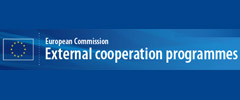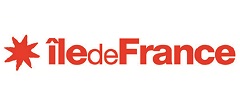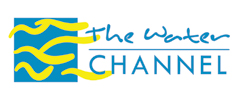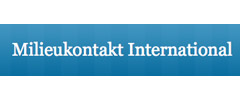EEB puts requests to Environment Council meeting
European Environment Bureau requests to the European Environment Council meeting on June 26
02.06.2006 |Isabel Ripa
Brussels, 29 May 2006
To: the Environment Ministers of EU Member States
Concerning: Input for EU Environment Council meeting 26 June 2006
Dear Minister,
On behalf of the European Environmental Bureau I should like to offer you our views on eight of the issues on the agenda for the forthcoming EU Environment Council. I invite you to take our concerns into account during the final official- level preparations, as well as during the meeting itself. Below I present the key messages. Attached you will find EEB’s more detailed input to the discussion on the same topics.
1. Directive on ambient air quality and clean air for Europe
The commitments made in the Council’s conclusions on the Thematic Strategy on Air Pollution in March, which we welcome, should be implemented by strengthening and not weakening the Directive on air quality. We are particularly concerned about the all-out attacks on existing quality standards, on deadlines, exemptions and scope, which risk resulting in an unprecedented environmental roll-back in the EU. This would be the outcome of exempting certain pollutants from “natural sources” as well as exempting certain areas, where limit values would not apply. Both would lower health protection as well as making the Directive unenforceable and un-workable. These exemptions have no basis in science and act against better regulation.
We therefore call upon the Environment Council to:
- Oppose a massive environmental rollback by banning further exemptions.
- If time-limited derogations are introduced, ensure that they do not reward laggards, who have so far not done enough to reduce air pollution. Derogations must not exceed five years and must be handled very restrictively, when Member States have proved that adequate measures have been implemented.
- Introduce binding standards for PM2.5 by setting a concentration cap at 12 µg and making the proposed exposure-reduction legally binding.
2. Euro 5
The EEB and the European Federation for Transport and Environment (T&E) are disappointed by the Commission’s proposal for Euro 5. Stricter standards are necessary to help Member States meet the EU air quality standards for PM, NO2, and ozone. A second ‘Euro 6’ stage of emission reductions – with NOX emissions at a level of 40 mg/km - is also needed to achieve ‘near zero’ air pollution from new cars.
The EEB and T&E therefore call on the Environment Council to:
- Lower the ‘Euro 5’ NOx limit values from 200 mg to 75 mg/km applicable from entry into force of Euro 5;
- Lower the proposed limits for particles from 5 to 2 mg/km.
- Introduce a ‘Euro 6’ stage of emission standards which is technology-neutral (i.e. same standards for petrol and diesel) and at ‘near zero’ emission levels
3. Directive on the Assessment and Management of Flood Risks
We understand the Presidency’s determination to secure an agreement, but this should not impair its quality. We are concerned about requests to narrow the scope to include international river basins only and also about any other opt-out clauses which rely upon the flawed justification of avoiding “double work”. This would render the Directive virtually useless. Instead, the Council should ensure that parallel planning, under the Water Framework and Flooding Directives, is prevented, to achieve real “better regulation”. Two separate planning processes, and hence two consultation processes, waste administrative and NGO resources and make it even more difficult to explain the relevance of such work to the public. The Council should also support improvements adopted by the EP Environment Committee, which has added the necessary environmental aspects (supporting Water Framework Directive objectives, space for rivers approach) and the use of economic instruments.
The EEB calls upon the Environment Council to:
- Insert an acceptable environmental dimension to the proposal through:
- clear support for EU environmental objectives in Article 1
- consideration of natural flood retention capacities and promotion of non-structural measures (space for rivers) in management measures (Article 9)
- cost-recovery assessment of flood defences related to building infrastructure, including their environmental costs (Article 9).
- Mandatory integration of flood risk mapping and management with the Water Framework Directive River Basin Management Plans (article 13.1).
4. Thematic Strategy on Prevention and Recycling of Waste
In the light of future discussion about major revisions to the Waste Framework Directive, the Council’s conclusions on the Thematic Strategy are of great importance in establishing the general political direction. We welcome the preparatory discussions, which have indicated support for key issues, including the need to maintain a clearly differentiated five-step waste hierarchy, the importance of firm measures on prevention and waste stream legislation to steer recycling (specifically for biowaste). These crucial elements must be retained. But we regret the Council’s failure to face up to a number of fundamental issues.
The EEB therefore calls on the Environment Council inter alia to:
- Reject the Commission’s reading of the definition of recovery in general, and specifically its proposal to classify ‘electricity only’ municipal waste incinerators as recovery facilities
- Ensure that the environmental objective of waste policy should primarily be to reduce waste generation (prevention). Secondly, to minimise the environmental impact of handling unavoidable waste
- Recognise that waste prevention requires URGENT action on two separate fronts – ecological product policy, but equally importantly, waste management itself.
5. Thematic Strategy on Urban Environment
The Commission Communication lacks ambition and legally-binding measures are absent. The EEB fails to see how the voluntary nature of the Strategy will improve the behaviour of poor urban environment performers. This voluntary approach has not worked in the past, which explains why most cities still face enormous problems with urban sprawl, congestion, air and noise pollution, derelict land and the generation of waste and waste-water.
The EEB therefore calls on the Environment Council to:
- Deplore the unambitious aims of the Strategy and emphasise that the proposed measures proposed fall far short of the 6EAP objectives
- Urge the Commission to prepare Directives for a Sustainable Urban Management and Transport Plan and to come up with ambitious proposals to reduce emissions from heavy-duty vehicles (EURO VI) and domestic heating appliances, and to establish a common framework for low-emission zones
- Call upon the Member States to take advantage of new opportunities in the Cohesion Fund and Structural Funds to address environmental priorities in urban areas and to include a strong urban focus in the National Strategic Reference Frameworks
- Urge the Commission to maintain the decoupling and modal shift principles in the forthcoming revised White Paper on European Transport Policy.
6. LIFE +
We welcome the European Parliament’s success in securing, a small increase of €100m for LIFE+ and Natura 2000’, following negotiations with the Council and Commission. However it now transpires that only €50m of this €100m has actually been allocated to LIFE+, leaving it unclear where the remaining €50m will go. It is very important that all the hard-won €100m should go to Natura 2000. The Council should also urge Member States not only to integrate the Natura 2000 and water protection needs adequately into the national strategic reference frameworks, but also to convert them into tangible measures and projects under the operational plans, and allocating to them worthwhile budgets. So far this has not always been the case.
The EEB therefore calls on the Environment Council to:
- Agree on ring-fencing a minimum of 50% of the LIFE+ budget for the Nature and Biodiversity component
- Seek to clarify and request the allocation to LIFE+ of the ‘extra’ €100m, agreed under the financial perspectives
- Ensure that environmental priorities under the Structural, Rural Development and Cohesion Funds are translated into substantive projects which receive a worthwhile level of funding.
7. Genetically Modified Organisms (GMOs)
Following the last Council policy debate, the EEB welcomes the general support for “greater transparency of procedures and fuller and more appropriate information for consumers”. The EEB also welcomes the new measures proposed by the Commission on 12 April 2006 “to improve the scientific consistency and transparency of decisions on GMOs”, which is a step in the right direction, but needs to go further. The GMO authorisation process needs more transparency and democracy. Legal and scientific problems with the EFSA risk assessment need to be confronted.
The EEB calls upon the Council to ensure that EFSA respects all its legal requirements, and that the role of national scientific authorities is recognised.
See also Annex 7 for more specific EEB comments.
8. Alpine Convention, Protocols on the Implementation of the Convention in the field of energy, soil protection and tourism
Following the Council’s signature of the three protocols on energy, soil protection and tourism in December 2005, the EEB welcomes their proposed ratification as a further step in the Alpine Convention’s implementation process.
The EEB therefore calls on the Environment Council to:
- fully support the proposed ratification of the protocols on energy, soil protection and tourism
- insist that the Commission continues the ratification process for three further protocols
- Support efforts to finalise signature of the Transport protocol.
Yours sincerely,
John Hontelez
Secretary General EEB

































